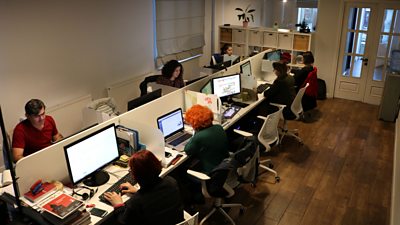'Journalism has become a dangerous profession. We have received numerous threats on social networks from anonymous users.'
In over a decade of being editor-in-chief of Netgazeti.ge, an online Georgian- and Russian-language news portal based in Tbilisi, Nestan Tsetskhladze has overseen coverage of conflict and political turmoil – and her work only seems to be growing more difficult.
Georgia’s 30 years of independence have included four years of civil war, a ‘Rose Revolution’, accusations of presidential corruption, and conflict with Russia including the 2008 Russo-Georgian war over the regions of Abkhazia and South Ossetia. The country’s relationship with Russia remains tense, and most of the country’s media reflect the turmoil: funded by wealthy and competing factions, strongly polarised and flooded with misinformation.
Amid the turmoil, Batumelebi – then a regional newspaper based in the Black Sea port city of Batumi – had earned a reputation for independent reporting, and in 2010, its online Tbilisi-based sister organisation, netgazeti.ge, was born. The news organisation still maintains both brands, with offices in Batumi and Tbilisi, and its staff pride themselves on independent, impartial journalism.
'We wanted to give our audiences an independent media outlet'
“The reason we started is that there was not enough independent media outlets in Georgia. We wanted to give our audiences an independent media outlet,” Nestan reflects now. International donors were essential to help them launch; their following grew quickly, along with their reputation for independence.
A decade on, the challenges are many - and not least among them are threats to her staff’s security.
Last summer, a Georgian journalist was found dead at his home a week after being beaten in a Pride march in Tbilisi. Alexander Lashakarava was filming for an independent TV station when he was set upon by a violent mob of anti LGBTQI+ protesters, who fractured his facial bones. He was one of more than 50 journalists harassed and beaten, with their equipment damaged. His cause of death has never been ascertained, but it led to protests in front of Parliament and the ruling party’s offices.
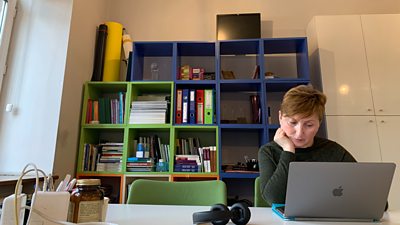
Targets for violence
Netgazeti’s journalists have also been targets for violence – both around the Pride march, and in the days and weeks afterward. “The situation has become very hard,” Nestan said. “Journalism has become a dangerous profession. We have received numerous threats on social networks from anonymous users.
“In 20 years of working in journalism… I don’t remember such kind of events.”
Trying to remain an independent, impartial source of news has earned Netgazeti a declaration by the Russian Ministry of Foreign Affairs that they are purveyors of ‘misinformation’. “On one hand, this is a compliment that we are working well,” she said. “But on the other hand, this is a challenge and can be dangerous, because of threats from pro-Russian trolls.” Cyber-security is a constant challenge, and consumes much time and resource.
Struggle for funding
However, the most pressing issue for Netgazeti and Batumelebi may be funding. Georgia is an upper-middle income country, but with enormous gaps between richest and poorest. ����ý Media Action research has found that its readers say they would, in theory, be willing to subscribe to the website if it meant it could continue. But in reality, few Georgians do subscribe to other media, such as Netflix or Amazon Prime. Advertising revenue is not enough even in good times; it has dwindled during the COVID-19 pandemic, and often fluctuates according to political loyalties and what is in the news that day.
Privately backed broadcast media, meanwhile, are able to offer reporters and editors many times the salary that they can earn at Netgazeti.
“This is not a fair market. We are going to exist because we have very enthusiastic and idealistic editors and journalists who appreciate their profession, and for whom editorial independence and freedom of expression have great value,” she said. “But even the most enthusiastic editors and journalists will find it hard to continue without even a small salary to live on.”
Batumelebi is now an online-only publication, as a result of their financial struggles. Donor funding continues to be essential to their survival.
Trying to become sustainable
����ý Media Action has worked with Netgazeti and Batumelebi for two years, providing training on newsroom management, digital storytelling, editorial standards and reporting skills, and social media strategy, as well as a grant to launch their Russian-language services. They have also received strategic support and training to develop more effective business models, including improving their advertising streams and use of crowdfunding.
“We have tried for a long time to become sustainable as a media organisation in Georgia,” Nestan said.
“At the time we started, we expected in 10 years everything would have changed. Unfortunately the situation is still the same – media is still very polarised … And also because of the internet business models, there are only a few independent and reliable news sites, and we don’t have enough human resources or financial support. We have no opportunity to reach a wide audience and cover everything that we want to cover.”
Yet, despite the many international donors invested in Georgia, she said, few turn their attention to support for independent media – despite their essential role in improved governance and safeguarding space for civil society.
“It’s also donors’ obligation to support independent media in countries like Georgia, a small country where democracy is very vulnerable, and the media environment is not free.”
����ý Media Action's Support to Independent Media in the Eastern Partnership countries project is funded by the UK Foreign, Commonwealth and Development Office.
Latest Georgia stories
More stories from GeorgiaOur projects in Europe and Caucasus
-

Support to independent media in the Eastern Partnership countries
We are working in Eastern Europe and the Caucasus to support public interest media. -
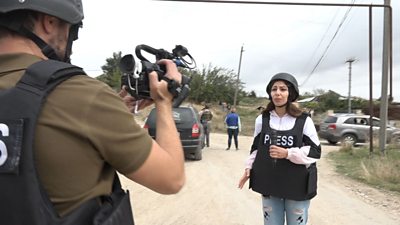
Strengthening Armenia’s vibrant independent media
We are working with students and public interest media to improve journalistic standards and ensure access to objective, impartial and trustworthy information. -
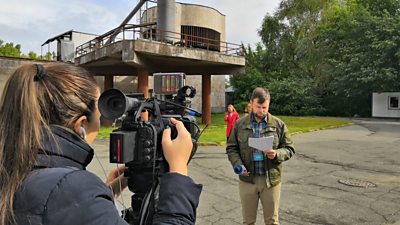
Supporting Ukraine’s new Public Service Broadcaster
Through two projects, we’re supporting the newly-established National Public Broadcaster in Ukraine, UA:PBC, to improve its capacity as an independent, impartial news broadcaster. -
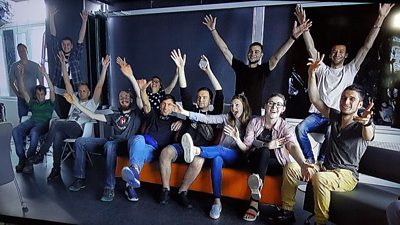
Supporting independent news in Ukraine
Media Action is working on a Good Governance Fund-supported programme to enhance the capacity of the Ukrainian TV station – Hromadske TV.
Where we work
-
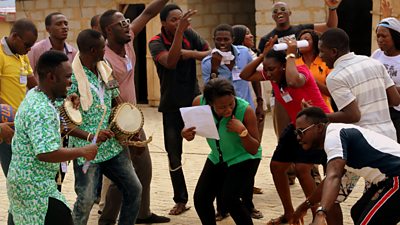
In Africa
Delve into our projects in Africa which range from media training to radio and TV programmes to tackle key development issues. Learn more here. -
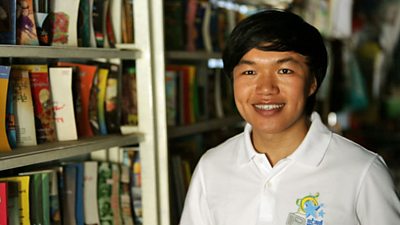
In Asia-Pacific
Explore the breadth of our projects in Asia which achieve impact through innovative mobile phone services, TV debate shows and traditional street theatre. -
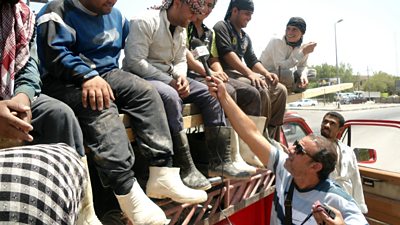
In Middle East & North Africa
Learn more about our longstanding media training projects and programmes that strengthen media development and provide a forum for trusted dialogue. -
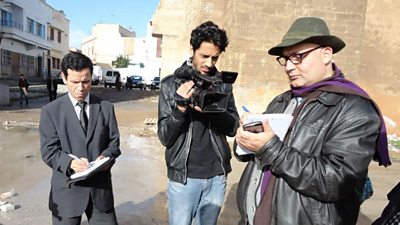
In Europe & Caucasus
Our projects increase trusted, inclusive and independent media programming to help people make sense of events in their countries and engage in dialogue – ultimately bringing societies together.
